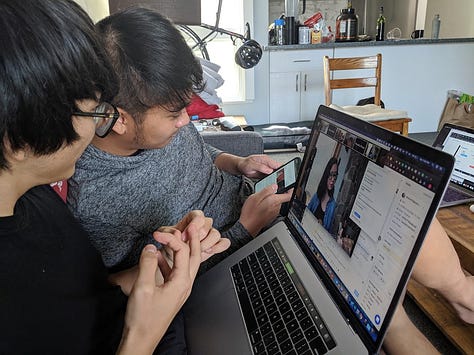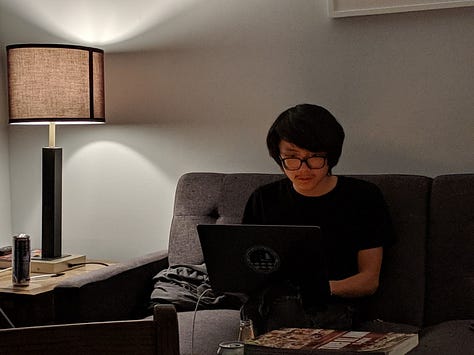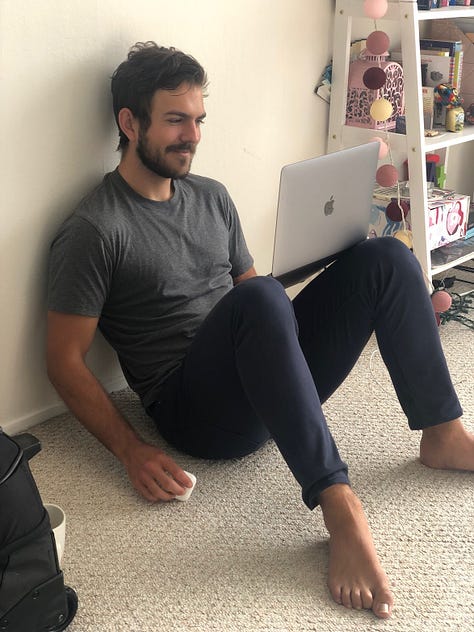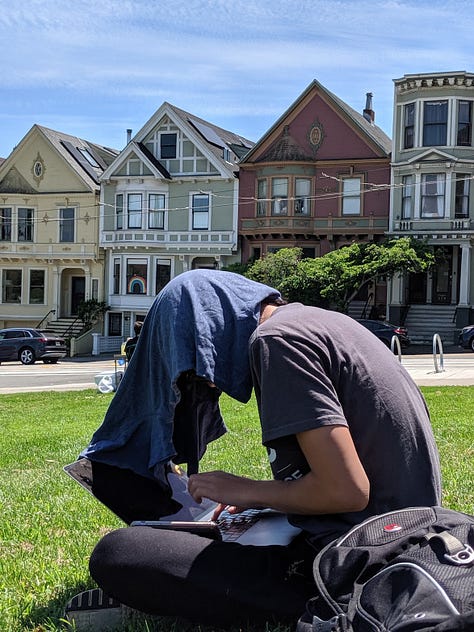🦠 From Pandemic to Pivot: The Stream Club Saga
Lessons learned starting a company during a global pandemic
Over the past few weeks, I’ve been writing a retrospective of my startup Stream Club. In three parts, I’ll share our wild journey of fundraising, pivoting, and selling the company in 18 months. This is part one!
Jumping Off (April 2020)
I've met many people who say they want to start a company but are waiting for the right time, the right person, or the right idea. I was one of them. But I’ve since learned that you’ll never find the perfect combination of timing/team/ideas. Often, it just falls into your lap.
Let’s rewind to April 2020. I had just made the promotion I’d worked incredibly hard for. I had RSUs on RSUs. All I had to do was sit tight and vest.
But I was still unhappy.
After extensive reflection, I concluded that my growth within my organization was out of my control. No matter how hard I worked or how much value I created, I was on a linear growth path. It made me feel helpless and doubtful of the system I was a part of.
Looking for answers, I consulted Paul Graham’s blog. His Wealth essay taught me how startups are a much more efficient way to capture the value I was creating.
I then knew my next move would be to join or start a startup. But I had all these expectations about what the team would be or what we would be working on.
Lan Paje, Jun Hong, and Stream Club didn’t align with any of these expectations.
I knew Lan from college (barely) and didn’t know Jun at all. I thought you were supposed to start a company with people you know intimately. That’s what all the experts say!
And the idea was ... ok. At the time, Stream was going to be the best place for creators (yoga teachers) to host paid virtual classes. This was especially relevant during the dramatic shift to online platforms that was unfolding right before our eyes. I knew this was a slam dunk in the short term, but was partially dubious about the long-term vision.
If you looked at it from my expectations, it didn’t seem very promising. But I was still curious! So, I offered to help for free, just to get them started. I threw together a backend, wrote a neat Zoom API integration, and helped launch it on ProductHunt.
We built it in a weekend, and it was some of the most fun I’ve had in a while. Working with Jun was intoxicating; he had the most complementary skills of any engineer I’d ever met. We jammed together. And Lan was driving the whole show, building an immaculate marketing page that gave it legitimacy. By Sunday night, it looked like something we had been working on for three months, not three days.
Then this happened:
People liked it. It solved a relevant problem in a clean way. And we did a great job of shilling upvotes from all of our friends to get momentum started early.
This ok idea and team I didn’t know had some traction. And traction is invaluable. Even better, the team had chemistry! We had complementary skills but very different personalities. We could argue about ideas, bring different perspectives, and challenge each other.
After the Product Hunt launch, the dominos started falling.
Angel investors started reaching out. A big newsletter picked it up and sent it to hundreds of thousands of readers. We got a YC interview. And non-stop emails from potential investors.
In the span of a 3 weeks, I went from Big Tech engineer #1067 to CTO of Stream Projects Inc. The momentum was crazy. It was one of the highest highs I’ve ever experienced. We felt invincible.









Before we did the YC interview, Lan and Jun did one of the most gracious things anyone could have done. They pulled me aside and asked me to be a cofounder. This would formalize what had been a very fun side project for me. They put me in the position to say yes or no to chasing after one of my dreams. It would also mean I would have to make a six-figure decision about my current job and my unvested stock. I took a walk and thought about it. If this blew up, it could really set me back a few years.
I also thought about the positives:
I would never have known if this was or wasn't for me until I did this and learned.
Doing this is not a net loss. Everything I learn, the networks I build, skills I gain, will pay dividends in the future.
This is my first opportunity to get that 100X return I've always wanted.
This is my first opportunity to see just how much I can achieve when I'm not limited by an existing structure.
Furthermore, I evaluated the opportunity cost:
For how long will I have the ability to start a venture without anyone depending on me? (no spouse, children, mortgage, etc).
Likely 5 years (25-30).
For how long will I have the ability to work at a large tech company and make stable money?
At least 30 years (25-55).
That made my decision for me. I told them I would quit my job as soon as we raised $1 million or got into YC. They said that was fair, and I probably would have quit even if neither of those things happened. (We would go on to raise $2.1 million and skip YC)
Lan and Jun temporarily moved into my apartment in SF. For the next several weeks, we would take VC calls during the day, and code at night. Since couldn’t go out to eat (COVID), I would also cook a good amount of our meals. It was my first, but not last, experience being the team chef. And I loved it.
Being physically present while we were getting started was extreamly helpful. Investors were often surprised that we moved in together. It showed our commitment. It also helped us stay accountable to each other. So I pushed us to move in together full time. And in the back of my mind, I wanted to get out of SF. This seemed like an excellent chance to go check out other cities. So, I ended my lease, we packed our bags, and headed to an Airbnb in Chicago. And with that, our adventure began.




